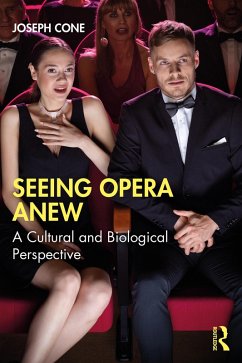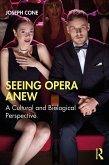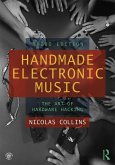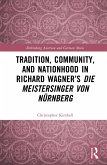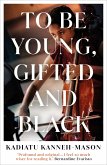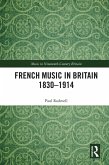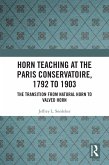How and why can this combination of music and drama do that? What causes people to be moved by opera? How is it that people may become more informed about living and their own lives? Seeing Opera Anew addresses these fundamental questions.
Most approaches to opera present information solely from the humanities, providing musical, literary, and historical interpretations, but this book offers a "stereo" perspective, adding insights from the sciences closely related to human life, including evolutionary biology, psychology, anthropology, and neuroscience. It can be hoped that academic specialists less familiar with the science will find points of interest in this book's novel approach, and that open-minded students and inquisitive opera-goers will be stimulated by its "cultural and biological perspective."
Dieser Download kann aus rechtlichen Gründen nur mit Rechnungsadresse in A, B, BG, CY, CZ, D, DK, EW, E, FIN, F, GR, HR, H, IRL, I, LT, L, LR, M, NL, PL, P, R, S, SLO, SK ausgeliefert werden.
Ellen Dissanayake, author of What Is Art For? and Homo Aestheticus: Where Art Comes From and Why
"Joseph Cone's Seeing Opera Anew strikes out many new connections between the arts, especially music-drama, and human nature. He lucidly scans about a score of masterpieces, discerning patterns outlined by evolutionary psychology and citing recent findings in anthropology and the psychology of emotions. In effect, he sketches out an enormous sphere of influences on our experiences in this, the most ambitious of the arts. Readers new to opera and established fans alike will find much to learn and enjoy in this truly multifaceted volume."
Brett Cooke, Professor of Russian, Texas A&M University
"This innovative and illuminating collection of short essays critically explores the history of opera through new realms of connection and serendipity. Cone has assembled a diverse representation of operatic style, period, and practice; inviting the reader to devolve further. Rich in imagery, colour, and anecdote, each essay situates an enduring operatic example within contemporary modalities, providing the art form with enhanced relevance, sustainability, and impact in an increasingly complex and challenging global market. Cone's innate knowledge, passion, and humor shine through, ensuring the storytelling remains inclusive and accessible to all readers. I highly recommend this publication as a key work that affords historic operatic practice a new 'home' within contemporary locales - with surprising and compelling results."
Nicole Panizza, Assistant Professor, Music, Coventry University, UK

